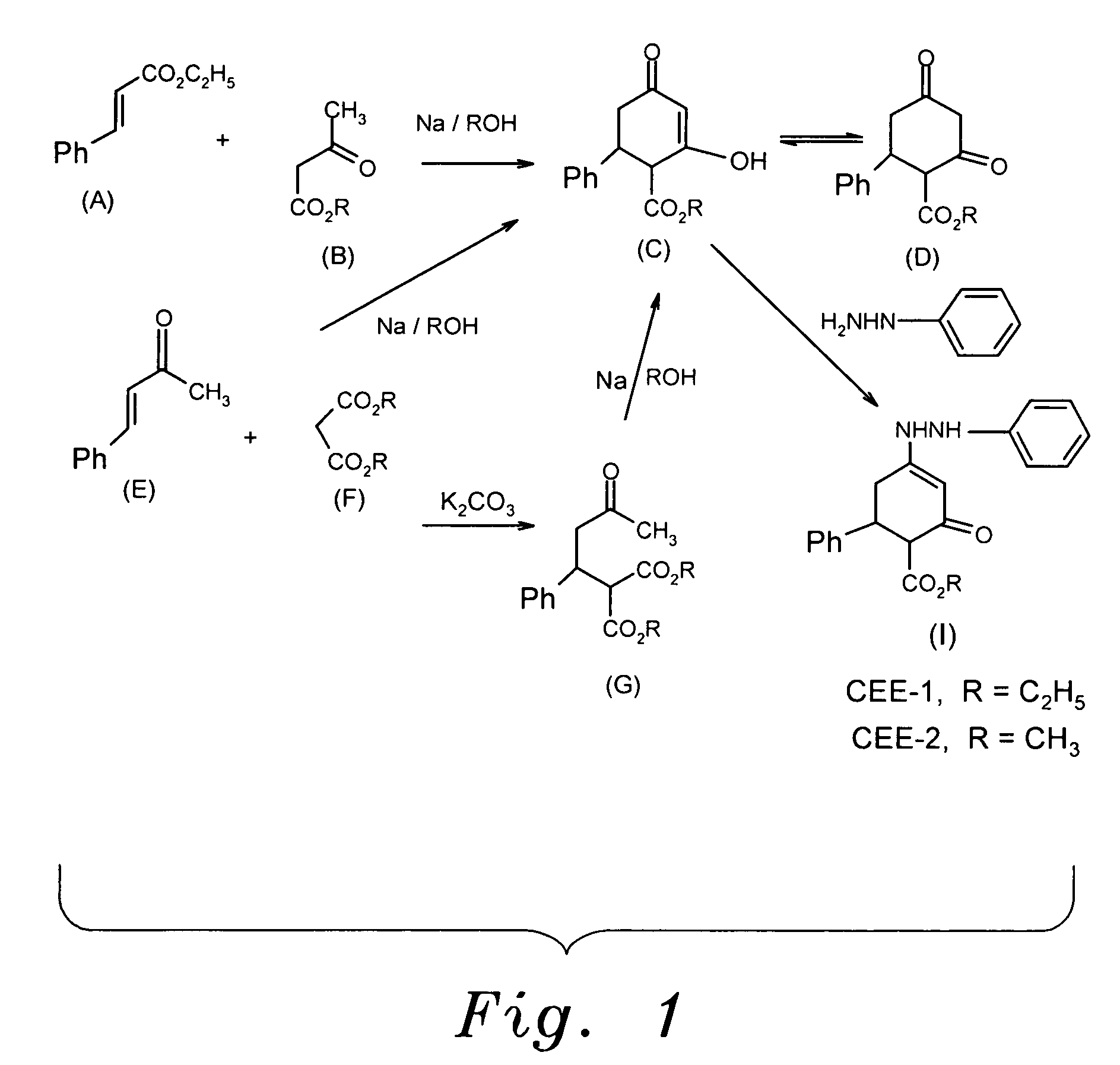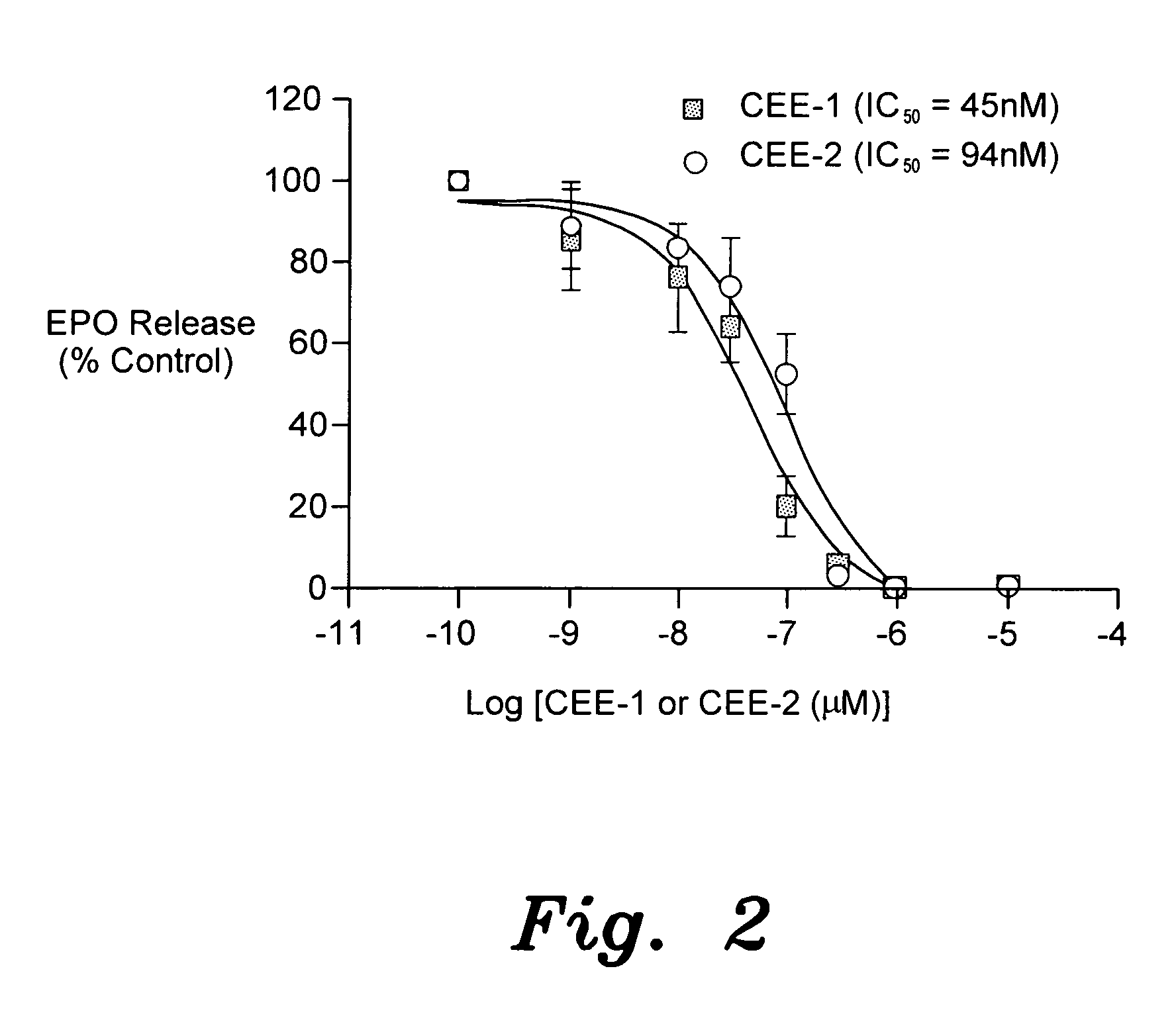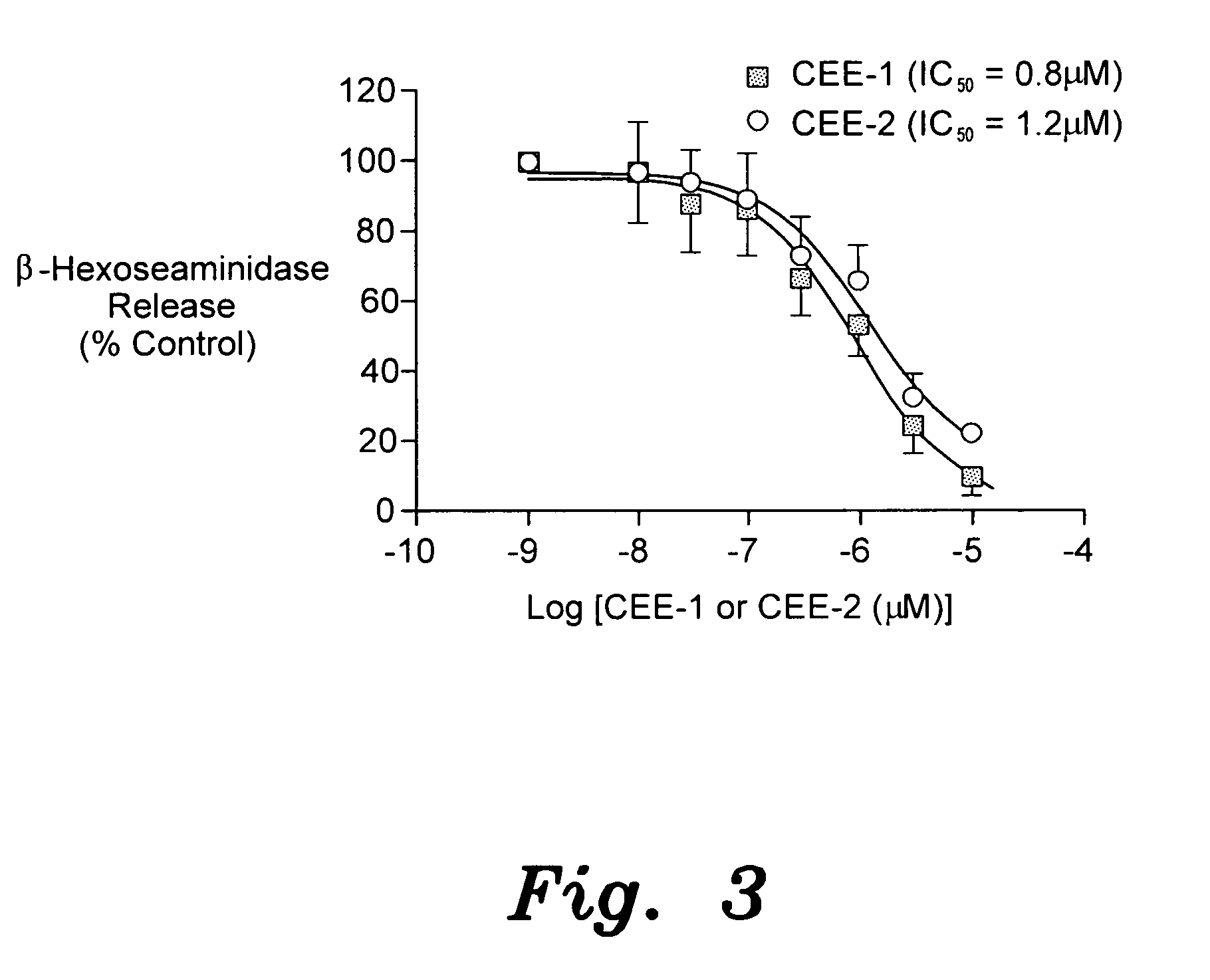Enhydrazone esters for treating asthma, allergy and inflammation
a technology of enhydrazone and esters, which is applied in the field of compositions for treating asthma, allergy and inflammation, can solve the problems of no existing clinically relevant anti-allergy or anti-asthmatic drugs, at clinically relevant concentrations, have any significant direct inhibitory effect on eosinophil degranulation, degranulation of these cells, and consequent release of pre-formed, etc., to achieve the effect of inhibiting inflammation
- Summary
- Abstract
- Description
- Claims
- Application Information
AI Technical Summary
Benefits of technology
Problems solved by technology
Method used
Image
Examples
example 1
[0031]Example 1 involves the testing of the effect of complement C5a-induced degranulation of human blood eosinophils, and IgE-dependent degranulation of mast cells. Human peripheral blood eosinophils were purified to >98% by the immunomagnetic method. Aliquots containing 2.5×104 cells were added to each well of a 96-well microplate. The cells were separately pre-incubated for 10 minutes with CEE-1, CEE-2 or the drug solvent (DMSO) and then subsequently stimulated with recombinant human complement C5a (30 nM) in the presence of cytochalasin B (5 μg / mL). The reaction was allowed to proceed for 30 minutes at 37° C. The amount of the granular eosinophil peroxidases (EPO) released into the supernatant (as index of degranulation) was determined by the o-phenylenediamine method. The amount of EPO released was expressed as a percentage of the total cell content.
[0032]FIG. 2 displays the inhibition of complement C5a-stimulated degranulation (EPO release) of human eosinophils by CEE-1 and CE...
example 2
[0034]Example 2 involves the testing of the IgE-dependent degranulation of mast cells.
[0035]The anti-allergic effect was tested on IgE-dependent mast cell degranulation using the rat basophilic leukemia (RBL-2H3) cell line model. The cells were passively sensitized with 0.5 μg / mL anti-DNP monoclonal IgE antibody for 1 hour, and then washed twice to remove unbound antibody. They were then separately pre-treated with CEE-1, CEE-2 or their solvent (DMSO) for 10 minutes before being stimulated with the specific antigen DNP-BSA (100 ng / mL). After 30 minutes of incubation, the amount of granular β-hexoseaminidase released into the supernatant (index of degranulation) was determined photometrically.
[0036]FIG. 3 illustrates the inhibition of antigen induced IgE-mediated degranulation (β-hexoseaminidase release) of mast cells (RBL-2H3) by CEE-1 and CEE-2. Cells were incubated with CEE-1 and CEE-2 for 10 minutes before stimulation. Control uninhibited releases were in the range of 15-26% of t...
example 3
[0038]The antiinflammatory effect of CEE-1 and CEE-2 was tested on LPS-stimulated release of tumor necrotic factor-α (TNF-α) from mouse peritoneal macrophages. Thioglycollate-induced peritoneal macrophages were obtained by peritoneal lavage of Balb c mice. Macrophages purified by adherence to plastic plate were cultured in a supplemented RPMI medium and pre-treated with CEE-1, CEE-2 or their solvent (DMSO) for 30 minutes before being stimulated with LPS (1 μg / mL) for 18 hours. The amount of TNF-α released into the supernatant was determined by ELISA using commercially available kits.
[0039]FIG. 4 illustrates the inhibitory effect of CEE-1 and CEE-2 on the release of TNF-α from LPS-stimulated mouse peritoneal macrophages. Cells were pre-treated with the drugs for 30 minutes before stimulation with LPS (1 μg / mL). The net uninhibited releases were in the range of 130-185 pg / ml. Values are shown as mean±SD, n=3.
[0040]As shown in FIG. 4, treatment of the cells with CEE-1 and CEE-2 strongl...
PUM
 Login to View More
Login to View More Abstract
Description
Claims
Application Information
 Login to View More
Login to View More - R&D
- Intellectual Property
- Life Sciences
- Materials
- Tech Scout
- Unparalleled Data Quality
- Higher Quality Content
- 60% Fewer Hallucinations
Browse by: Latest US Patents, China's latest patents, Technical Efficacy Thesaurus, Application Domain, Technology Topic, Popular Technical Reports.
© 2025 PatSnap. All rights reserved.Legal|Privacy policy|Modern Slavery Act Transparency Statement|Sitemap|About US| Contact US: help@patsnap.com



